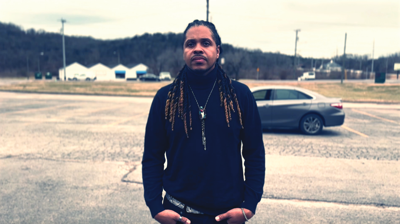Nashville’s explosive growth has been well-documented over the past several years, revealing a wide range of opportunities, along with some intricate challenges. With the premiere of Lost and Found: A Story of Hope, one group of dedicated community leaders is hoping to spark conversation while honoring a unique chapter in the city’s history.
Written by Aleesa Mann, Lost and Found takes a hard look at the Federal-Aid Highway Act of 1956 and its impact on the historically Black neighborhood along Jefferson Street. Blending traditional theater with multimedia touches, the story centers on a close-knit family struggling to navigate an uncertain future — and to reclaim at least some of what’s been lost.
“It’s such an important story, and one that I feel is very timely,” says the Rev. Sam Kirk, executive producer of Lost and Found. Kirk is also the founder and executive director of Youth About Business, a local nonprofit dedicated to creating learning experiences and opportunities for students in underserved communities. “When the highway came through Jefferson Street, it displaced so many families and businesses. So now, as we look at all the growth happening in Nashville — and as that growth pushes into North Nashville and Bordeaux — I’m wondering how we do things in a way that feels more inclusive. How do we revitalize the community and create growth opportunities without simply disrupting and displacing people’s lives?”
While Lost and Found admittedly takes on some heavy themes, Kirk says there’s also a great deal of hope and levity to the story.
The new podcast explores the history of Nashville’s enduring Black neighborhood as told by some of its longtime residents
“I think Aleesa Mann has done a fantastic job of balancing the play’s tone,” he says. “And we’ve also woven in some cinematic elements that I think really add to the effect. There’s some archival footage of Jefferson Street in its heyday, but we also have moments where the cinematic content actually sort of interacts with the stage play, which is very unique.”
Beyond the performance itself, Kirk is eager to foster conversation. And by presenting the piece at Manna From Heaven Dinner House (something of a hidden gem on West Hamilton Avenue, and part of the Youth About Business facilities), Kirk plans to reinforce themes of community and civic engagement. Community leaders — including notable figures such as former Nashville Mayor Megan Barry and state Rep. Harold Love Jr. — are set to host post-show talkbacks following each performance of Lost and Found.
“We felt like this was a good way to set the tone for the evening — and to really get people engaged,” he says. “I have a feeling that we’re going to have some great conversations around this show. This is not a Black thing or a white thing — this is a Nashville thing. And I hope people will come together to share this important story.”
Director Brandon Hirsch certainly shares that hope.
“What really caught my eye with this script was its timeliness — its relevance and meaning,” says Hirsch, a seasoned actor who has worked extensively in film and television, as well as at regional theaters such as Nashville Rep, Studio Tenn and the Alliance Theatre in Atlanta. “I grew up in Hendersonville, but had family here in North Nashville. And while I was familiar with the story of the Federal-Aid Highway Act, I didn’t fully understand its impact on Jefferson Street and the resulting migration to Bordeaux and other areas. So when I read this script, it really girded my interest. And with all the things happening in the world right now, I felt this was a great opportunity for both the artistic community, and the community in general.”
Hirsch immediately sought out L. Warren Young for the role of family patriarch, Baba. Young, who grew up in Nashville and graduated from Tennessee State University, is perhaps best known for his work in television series like Greenleaf and The Wonder Years, along with films such as The Color Purple, We Are Marshall and The Blind Side.
“In speaking with [Young], it’s clear that this story is personal for him,” Hirsch says. “He grew up here. He understands this community and its history. Of course, he also has an incredible dramatic range — with all the charisma and gravitas this role requires.
“This play talks a lot about legacy and personal empowerment,” he adds. “As we get to know the character of Baba, we see that he’s lost more than just his business — he’s lost his security, his standing in the community. But what we learn is that legacy is not limited to your ability to transfer material wealth or property. Legacy starts in the heart. And whether you’re the elder or the youth, you have something important to offer. That message feels really vital right now. So for us to be able to dig into a thoughtful, inspirational piece like this — to tell the truth without being accusatory, and to create a safe space for that level of dialogue — it feels like more than just a show.”






